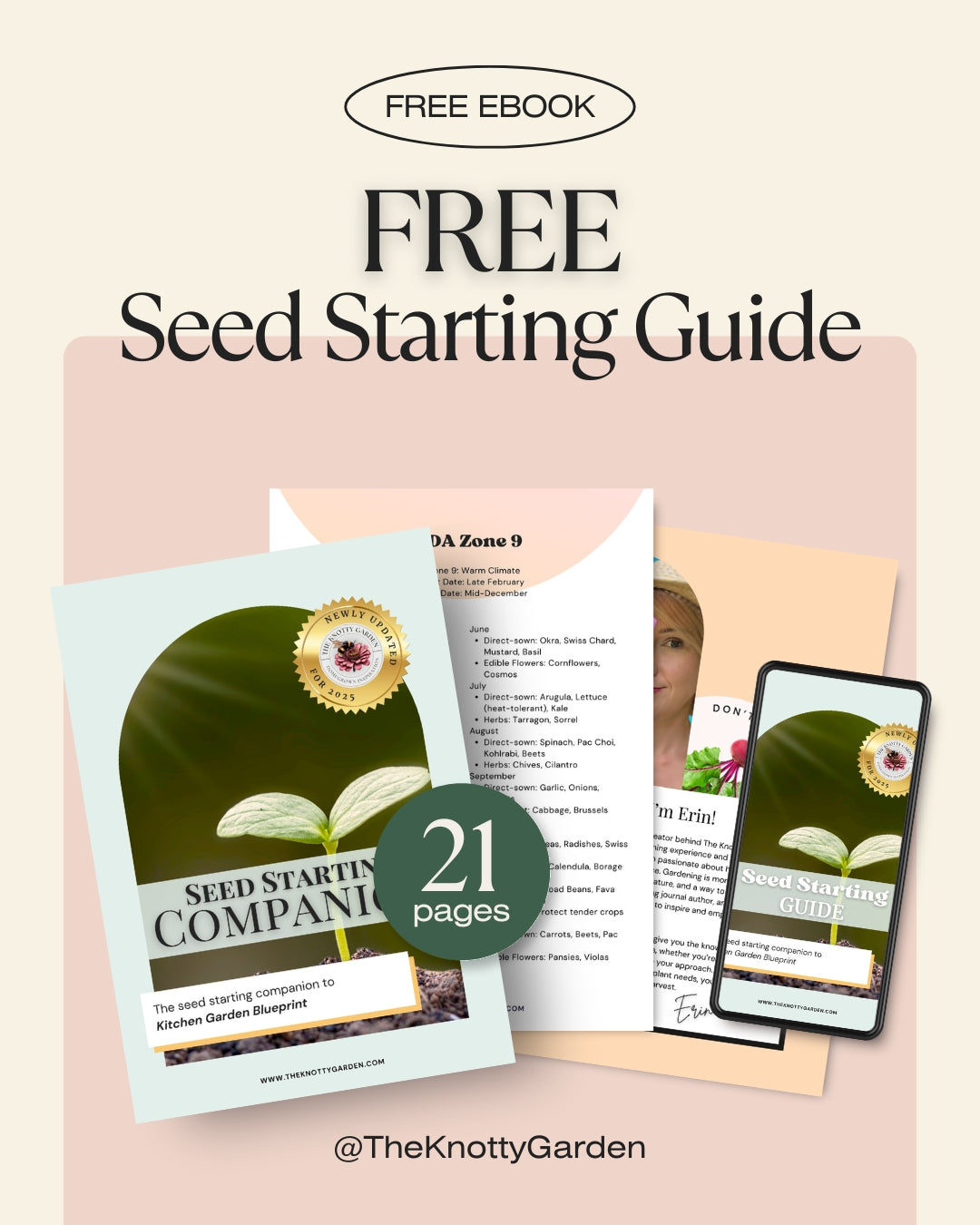If you’ve never planted garlic before, this is your sign to start. Garlic practically grows itself, and when planted in fall, it rewards you with two harvests next year: tender garlic scapes in early summer and full-sized bulbs in mid- to late summer.
I’m growing Red Russian hardneck garlic here in my Zone 7–8 garden, and it’s one of the most rewarding “set-it-and-forget-it” crops I grow. Here’s exactly how I plant mine... and why each step matters.


🧄 Step 1: Choose the Right Garlic
Garlic comes in two main types:
-
Hardneck varieties (like Red Russian, Music, German White): excellent flavor, cold-hardy, and produce edible scapes before bulb harvest.
-
Softneck varieties (like Silverskin or Artichoke): better for warmer climates and long storage, but no scapes.
Hardneck garlic thrives in cooler zones (5–8) and needs a period of winter chill to form large, segmented bulbs.
🌿 Step 2: Prepare the Soil
Garlic is a heavy feeder. I enrich the bed with:
-
Gaia Green Organics Worm Castings – adds beneficial microbes and gentle, slow-release nutrients.
-
Gaia Green All-Purpose Fertilizer (4-4-4) – balances nitrogen for leaf growth with phosphorus and potassium for root and bulb development.
Work these amendments 2–3 inches into the top of the soil with a hand tool. I use my Pine Bush Home and Garden Transplanting Tool; it’s sturdy, precise, and makes this step effortless.
💡 The science: Garlic roots form in fall and grow whenever soil temperatures are above 0 °C (32 °F). Building fertility now supports strong root systems that fuel bulb expansion next spring.
🔩 Step 3: Make Planting Holes
Instead of digging, I use my Ryobi drill with a Power Planter bulb auger bit. It creates perfectly spaced holes in seconds.
Space holes 6 inches apart in rows 8–10 inches apart. Depth should be 4–5 inches; deeper planting insulates cloves against freeze-thaw cycles and helps form larger bulbs.
🌰 Step 4: Plant the Cloves
Break apart your garlic bulbs into individual cloves just before planting (leaving skins intact).
Place each clove pointed side up, root end down.
Firm the soil gently around each clove to remove air pockets. Garlic likes consistent contact with the soil. It encourages early root growth before winter.
☔ Step 5: Let Nature Take Over
After planting, I simply smooth the soil and let autumn rains do the watering. In Zones 7–8, garlic doesn’t need frost protection; it actually requires cold temperatures to trigger bulb differentiation in spring.
Once the ground freezes, you can add a light straw or leaf mulch to moderate soil temperature and prevent winter heaving, but don’t smother the bed.
🌸 Step 6: Watch the Magic Happen
By early spring, you’ll see green shoots poking through.
In late spring to early summer, hardneck garlic produces scapes (curly flower stalks that should be cut once they coil). Removing scapes directs more energy into bulb growth (and gives you a delicious bonus harvest).
A few weeks later, the lower leaves will start to yellow- that’s your cue to harvest full-sized bulbs.
🔬 The Botanical Why
Garlic (Allium sativum) is a bulb-forming perennial grown as an annual. Each clove is a genetically identical vegetative clone that grows a new plant.
In fall, cloves develop roots and store carbohydrates. During winter dormancy, cold exposure triggers hormonal changes (vernalization) that tell the plant to form multiple cloves inside the bulb once warm weather returns.
🌾 Quick Reference Guide
| Step | What to Do | Why It Matters |
|---|---|---|
| Prep | Add worm castings + fertilizer | Builds fertility and microbial life |
| Drill Holes | 4–5 in deep, 6 in apart | Consistent size and spacing |
| Plant | Point up, root down | Prevents rotting and ensures upright growth |
| Water | Let fall rain handle it | Garlic dislikes soggy soil but needs moisture |
| Mulch | Optional after freeze | Insulates and protects roots |
| Harvest Scapes | Early summer | Encourages larger bulbs |
| Harvest Bulbs | Mid–late summer | When lower leaves brown |
🧺 My Favorite Tools & Supplies
-
Gaia Green Organics Worm Castings
-
Gaia Green All-Purpose Fertilizer (4-4-4)
-
Pine Bush Home and Garden Transplanting Tool
-
Ryobi Drill + Power Planter Bulb Auger Bit
These tools make garlic planting faster, easier, and honestly, way more fun!
💬 Ready to Plant?
Garlic is the ultimate low-effort, high-reward crop. Plant it once, let nature handle the rest, and you’ll enjoy flavorful bulbs and tender scapes next year.


